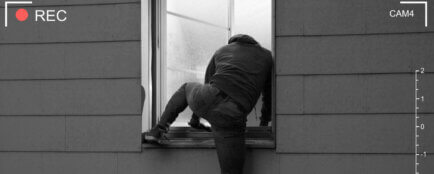The importance of the safeguard measure
A protective measure cannot be understood as a milder form of punishment; it is a different type of sanction. In contrast to traditional penalties (e.g. imprisonment), it can be imposed not only for a criminal offence but also for a so-called “otherwise punishable act”. Which is an act that is unpunishable in a given case, although it would otherwise be punishable. Such an act may be committed, for example, by an insane person or by a juvenile who lacks the requisite mental maturity.
Tip for article
Tip: Did you know that theft can also be a mere misdemeanour that is not even recorded in the criminal record? And did you know that the criminal record is also a state agency? We looked at the offenses, their divisions, and statutes of limitations in our article.
In certain cases, a protection measure may supplement a sentence, but it may also be imposed instead. Its primary purpose, however, is not to punish the offender (although this is of course also the case here), but above all to protect society. This, after all, is also clear from the very name of the sanction. Protective measures under the Criminal Code include
- protective custody – it is carried out in institutions with special security, where various therapeutic, psychological, educational, pedagogical or rehabilitation programmes may be applied. They are administered and guarded by the Prison Service.
- confiscation of an item – its object is an item that could be the subject of a forfeiture penalty, but this penalty has not been imposed on the offender by the court. The prerequisite for the seizure of an item is that it is an item which has been used to commit an offence or which has been used to commit an offence, or an item which the offender has acquired by means of the offence or as a reward for it, or an item which the offender has acquired only in part in exchange for the item referred to in the previous case.
- protective Treatment – The purpose of its imposition is primarily to have a therapeutic effect on persons who have committed a felony or otherwise criminal act. Insane persons will often be persons who are dangerous to society and it is necessary to ensure the protection of society by isolating these insane persons from other members of society, as their being at large may pose some danger.
- seizure of part of the property – the court may impose it on an offender who has been found guilty of a deliberate offence for which the Criminal Code provides for imprisonment with a maximum penalty of at least four years, or on an offender guilty of specific offences listed in the Criminal Code.
- protective education under the Juvenile Justice Act.
This also includes seizure of replacement value and seizure of files and equipment.
Are you solving a similar problem?
Are you dealing with a problem related to criminal proceedings?
Don’t leave anything to chance and use the services of an attorney. Your success in court depends primarily on properly designed evidence, which we will be happy to help you with. We will conduct a careful analysis of the case and take care of the representation in court, where we will vigorously enforce your rights.
I want to consult
- When you order, you know what you will get and how much it will cost.
- We handle everything online or in person at one of our 6 offices.
- We handle 8 out of 10 requests within 2 working days.
- We have specialists for every field of law.
The seriousness of the offence is not so important when imposing protective measures. It cannot be said that it is not taken into account at all, but there is no classical scaling as, for example, in the case of the aforementioned imprisonment, where it is determined exactly what form of crime can be followed by, for example, one, two or five years of imprisonment.
Tip for article
Hint: We have discussed in detail what types of punishments are provided for in the law and for which offences they are imposed in our article.
Principles for imposing protective measures
The Criminal Code specifies the principles for the imposition of protective measures, according to which they may not be imposed if they are not proportionate to the nature and gravity of the offence committed by the offender and the danger posed by the offender in the future to the interests protected by the criminal law, as well as to the offender’s person and circumstances.
In these respects, it is the aforementioned risk of future harm to the offender that is relevant. As we have said, protection is primary. If, for example, the forensic experts and, in particular, the judge consider that the offender’s previous acts were not so serious (for example, the offence was not a completed crime) but that there is a much greater risk in the future, then a protective measure is appropriate.
Another rule is that the harm caused by the protective measure imposed and enforced must not be greater than is necessary to achieve its purpose. The imposition of protective measures, provided that the legal conditions are met, is possible both separately and in addition to a sentence. However, a protection measure may be imposed in addition to a sentence only if its imposition alone would not be sufficient.
In general , more than one protection measure may be imposed alongside each other, unless the law provides otherwise. For example, protective treatment cannot be imposed in addition to precautionary detention, and seizure of part of the property cannot be imposed in addition to the penalty of forfeiture of part of the same property. Where several protective measures are imposed side by side and cannot be executed simultaneously, the court shall determine the order of their execution.
If the protective measures are imposed in combination with a sentence, the execution of the sentence shall take precedence, and only then shall the protective measure be applied.
Punishment of juveniles
Juvenile crime differs from adult crime in a number of ways. The general structure is similar. There are property offences, drug offences, violent offences and moral offences. However, due to age, certain crimes do not occur. Examples of property crimes are theft or robbery, but less often subsidy or loan fraud.
The fundamental difference with the punishment of adult offenders is the punishment itself, i.e. educational measures, protective measures and punitive measures in the case of juveniles .
Protective measures for juveniles are designed to influence their moral and mental development. These include:
- protective treatment – e.g. psychiatric, drug, alcohol or sexological treatment,
- protective detention – a detention centre for children or juveniles is something like protective treatment, but is administered by the prison service,
- seizure of property (or other assets) – this is mainly things that have been obtained through criminal activity or that have been obtained through a crime,
- protective education – takes place in special institutions for juveniles. It can only be imposed on a juvenile, i.e. a person who has reached the age of fifteen and has not exceeded his or her eighteenth birthday, and is imposed when upbringing in a biological family or other existing environment does not guarantee proper development.




